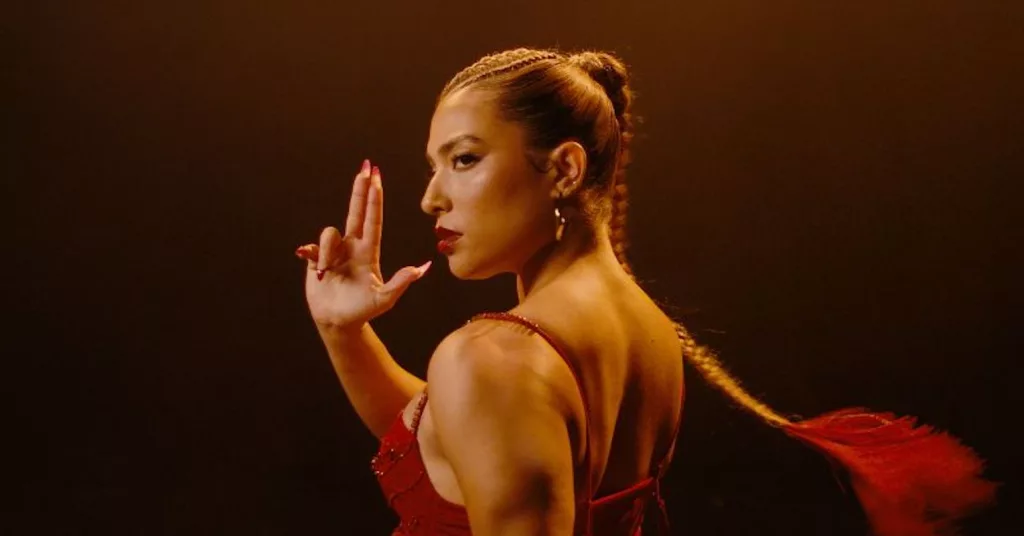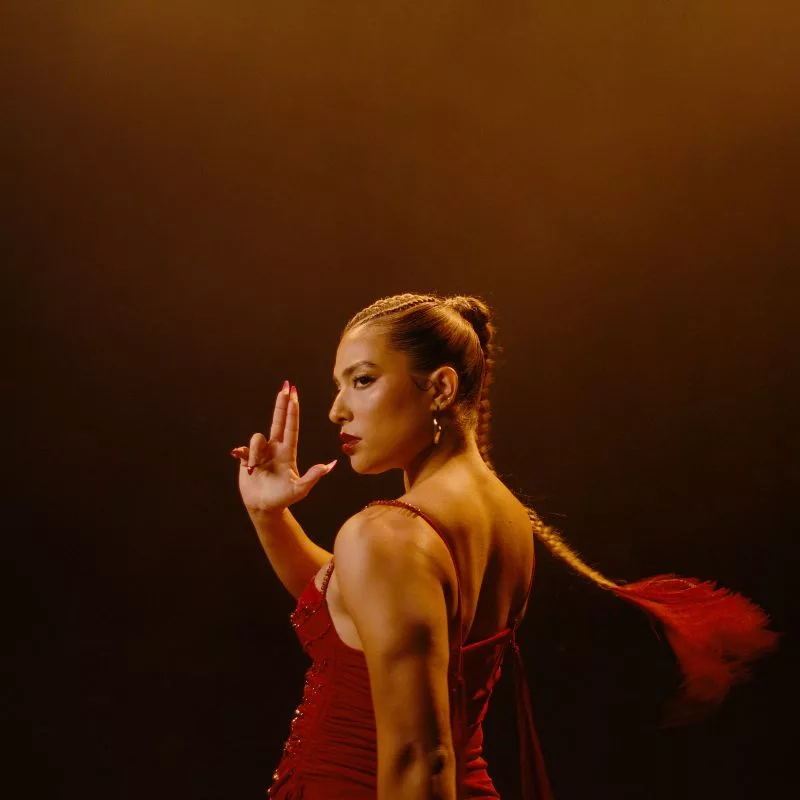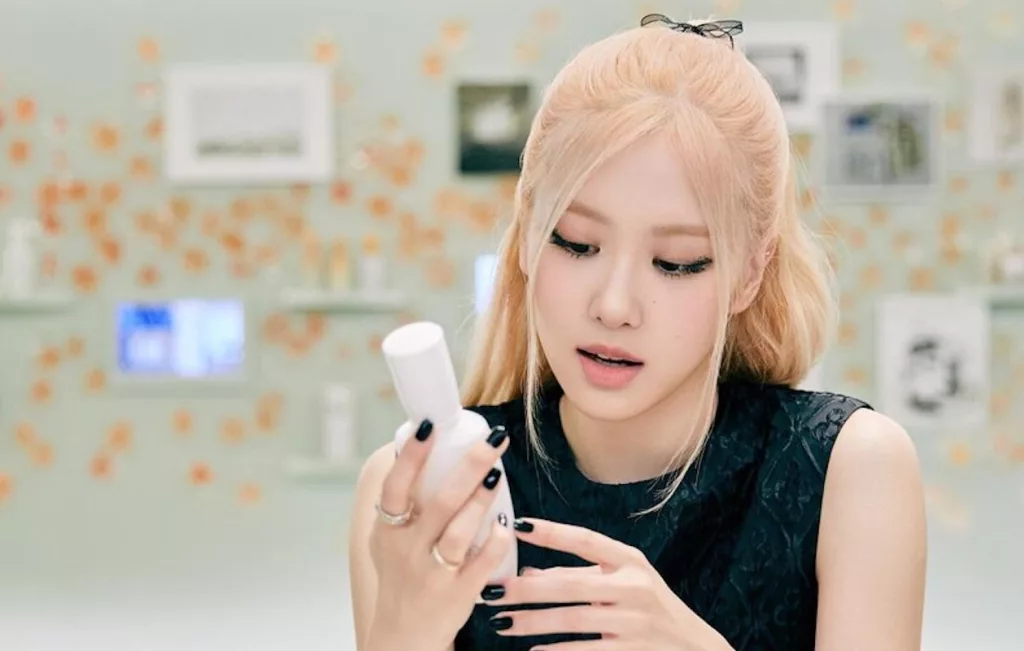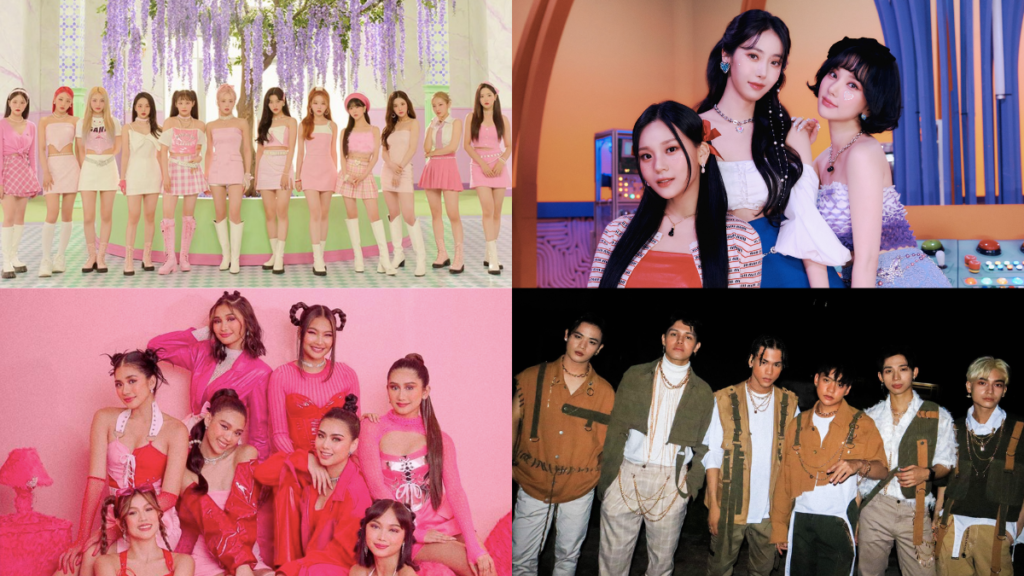Artist Spotlight: Letón Pé is Reinventing Dominican Music for the New Generation

“Rojo Rubí,” the track that gives name to Letón Pé’s newest EP, opens up with a throwback to the unmistakable “La Dueña del Swing.” The song, released in 1995 by Los Hermanos Rosario, is an anthemic essential in any well-informed Latin music playlist. Sampling a well-loved merengue classic by one of the most emblematic Dominican bands is a bold move. But the fast-rising songstress, Letón Pé — born Leticia Pelliccione — makes it justice.
Reinventing tropical rhythms with a 2020s edge, the Dominican singer-songwriter is breathing new life into music genres deeply associated with Dominican identity. Yet, Rojo Rubí, she says, is perhaps one of her most introspective and personal works to this day. It shows. With the contributions of heavyweights such as Latin Grammy-winning producer Julián Bernal and Calle 13 star Eduardo Cabra, Letón crafted a five-track EP where her eclectic music influences flawlessly blend with her lyrical genius and captivating voice.

Exploring Caribbean Music
“I can’t say that Rojo Rubí was something that I had been scheming and thinking about for a long time,” says the singer about her latest body of work. “[But] this has been the project in which I’ve felt the most connected to my music. I feel more connected and in total understanding of my art.” It’s late September when we hop on a Zoom call and she is all smiles and genuine candor, eager to talk about music and her newly released record.
A product of collaborative work, Rojo Rubí, she explains, came to life spontaneously, nearly serendipitously. “I had said that I wasn’t going to release an EP or an album. I was simply going to enjoy making music. I think it was a good sign that I took off the pressure of fulfilling a certain number of singles and doing something based on a specific context. I started to have fun, connect with producers and go to sessions here and there.”
Though Rojo Rubí assembled through a series of almost fateful encounters, Letón Pé always knew she wanted to explore the rhythms she had been listening to since she was a child — namely merengue, Caribbean and Dominican music. The starting point was bringing merenhouse — a blend of merengue, dancehall, house and hip-hop that thrived in the 1990s — to the table. “That was the first light bulb that turned on for me. In precisely the same order as the songs appear on the EP, the first [track] I created was “Bailo Pa’ Mi.” I was super satisfied. I really enjoyed the session and writing with the girls who were in the studio. [It was enlightening], I said I want to continue down this path, I want to keep digging to see what else I could find.”

Rojo Rubí
The “aha! moment” in the EP’s creation, however, only happened once Letón, with the contribution of Julián Bernal, created “Rojo Rubí.” The singer had traveled to Mexico for work commitments, hoping to dedicate part of her trip to relax and rest. “I didn’t intend to do sessions at all, […] but there was the opportunity to have a session with a producer, Julián,” she says with a big, amused smile that eventually weakens as she grows engrossed in the story. “In the studio, we started watching videos of merengueros from the ‘80s, including Fefita la Grande, who is an icon of Dominican music. She plays the accordion like no other. Julián began to notice that I had this fondness for Caribbean nostalgia — if you can call it that — and we started to create and create.”
Although she had repeatedly stated that she didn’t want to create a record, “Rojo Rubí” changed Letón’s mind. “The sound, the direction that had been taken with that song was too fresh and too interesting of a terrain not to continue exploiting it. It felt like an identity card. I said, I feel that this song has to come with an entourage, an army. With that song and “Bailo Pa’ Mi,” I was much clearer about what I wanted to explore, and what I wanted to do,” she says.
Fittingly, “Rojo Rubí,” would eventually precede the release of the full EP. The song was accompanied by a hypnotic music video that showcased Letón’s most theatrical side and showmanship — a nod to her background in musical theater perhaps.
From Theater to Music
Born and raised in the Dominican Republic, Letón never thought music would become the “last stop” in her career. Fresh off her studies in Musical Theater at The American Musical and Dramatic Academy in New York, she had encountered trouble finding auditions. One of the few castings she managed to secure was at a casino restaurant where she ended up performing every Saturday. She sang jazz music and bossa nova for some time before returning to the Dominican Republic.
In a similar fashion to the making of her latest EP, her foray into music was unplanned, almost fated. “I thought I was going to go for film or theater, but it turns out that [music] has been a profession that has pulled me by the arm again and again.” Letón further elaborates, “It’s like you are destined to do something specific, and no matter how much you try to say no, it comes back and you find yourself face to face with that destiny.”
Letón would spend about three or four years singing covers with a band at social events before a producer approached her with a project in the works. The singer readily lent her voice to the song, originally meant to be pitched to a major label. At that point, many people had been encouraging her to release original music but she wasn’t in a rush to do it. “I said, well, [I’ll release music] when I have something to say. I was really enjoying that stage and I was making a living from music at the end of the day,” she explains.
Unfortunately, the song Letón recorded was rejected and shelved for a few years. She would revisit it from time to time, thinking that it deserved to be shared with an audience. In an impulse, she suggested releasing the song to the producer and lyricist. With their approval, she took the reins of the project and even recorded a music video. Looking back on the decision, she reflects, “I wanted to make a video for it, as if I had a plan behind that song, because if you release a song, ideally, you should have more songs lined up. I didn’t,” she laughs.
Letón is amused at the memory, “I said let’s release it for fun, without even knowing how the industry worked. I made a super outlandish video — I don’t know what got into me — and in my mind, I thought, what am I going to do in case [people] like it? After that, there was no turning back. [The song] went viral here. It was very crazy.”
Genius Lyricism
Over time, Letón has solidified her place as one of the Dominican Republic’s most innovative acts. This year alone, she has earned a myriad of well-deserved titles and accolades including a first nod from the Latin Grammy Academy for her involvement in Eduardo Cabra’s EP MARTÍNEZ, nominated for Best Alternative Music Album. “It’s the closest I’ve been to the [Grammy] Awards. Even without that nomination, it was a privilege to be part of a project by someone like Cabra, a producer who happens to be an eminence within the industry,” Letón gushes.
While she might be thriving with her take on Caribbean music for the new generation, finding her musical language didn’t happen overnight. In addition to a continuous exercise of introspection and research, her humble approach to songwriting has contributed to enriching Letón’s songwriting journey. “[Composing] has been a process of growth, understanding and also humility. Knowing when something is not your strong point and working on it and practicing it until [you] feel comfortable — and then feeling comfortable doing what used to make you uncomfortable — is something beautiful and a very real human experience.”
Shredding prejudices has also been part of this creative quest, especially as a Latin artist crafting an entirely new, deeply personal sound. “In the end, there can be no prejudice when creating. Everything is valid. It’s fun when you break away from the norm,” Letón shares. “One of the things that stressed me the most was language, in the sense that now everyone wants to make music in Spanish but a few years ago that wasn’t the case. [It was believed] that [artists] should make music in English because that was the music that lent itself to globalization. Logically, if you undertake something and it is not in a language you’re not native to, you’re going to find obstacles. My most common feeling was, this sounds too cheesy, this is too cheesy, this doesn’t work.”
Fortunately, time, practice and humor have helped Letón to “shed that layer.” As she recounts, her first written song was playful and overflowing with wordplay, which facilitated finding the musicality. “At first, I was afraid to be very direct with the lyrics but practice strengthened me and made me comfortable,” she says. “I feel that I have already gone through many platforms that have fed my art and this continues to be my driving force when it comes to telling something and solidifying my voice.”
“Composing has been a process of growth, understanding and humility. Knowing when something is not your strong point and working on it and practicing it until you feel comfortable is something beautiful and a very real human experience.”
– Letón Pé

The Future
Throughout the interview, Letón’s passion for music and love for her craft are impossible to overlook. It comes as no surprise then that her plans for the future involve working on music and exploring new opportunities to stand on stage. “I want to make a lot of music, I have to close the year with enough demos to start the year on a high note,” she says with the brightest smile. “I hope that by 2024 there will be festivals of caliber where I can perform for the first time.”
Letón also sneaks, ”My aspirations are for my music to cross borders,” at the beginning of the sentence. It’s not meant to be the main takeaway, but after listening to Rojo Rubí, it’s clear that her music might as well take over the world.
Interested in more Latin American creatives? Check out the latest installment of Words of Women with bridal designer Nadia Manjarrez here.



